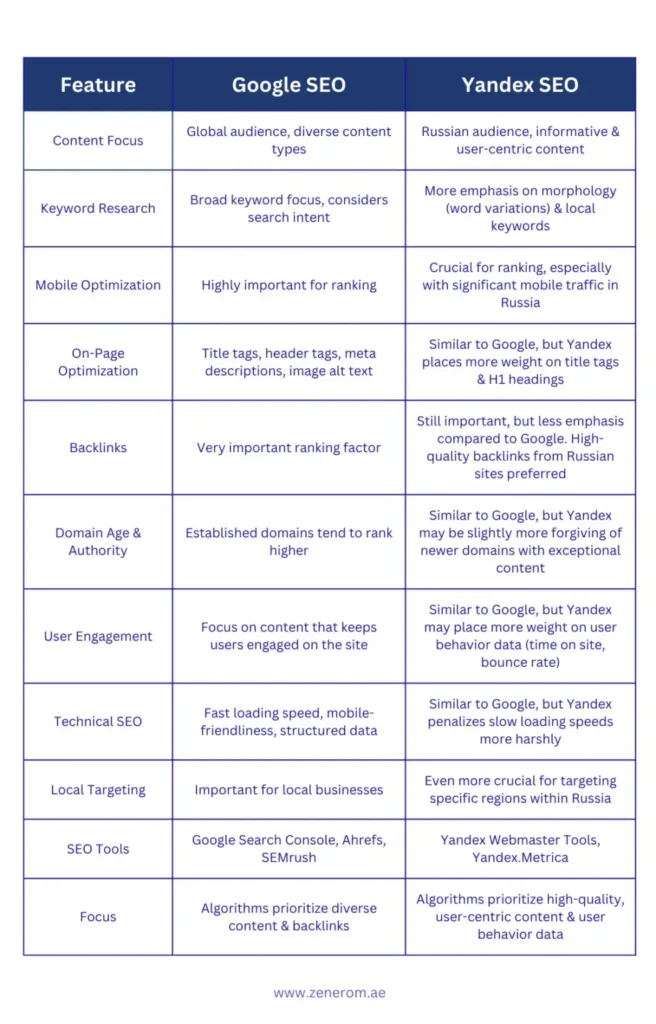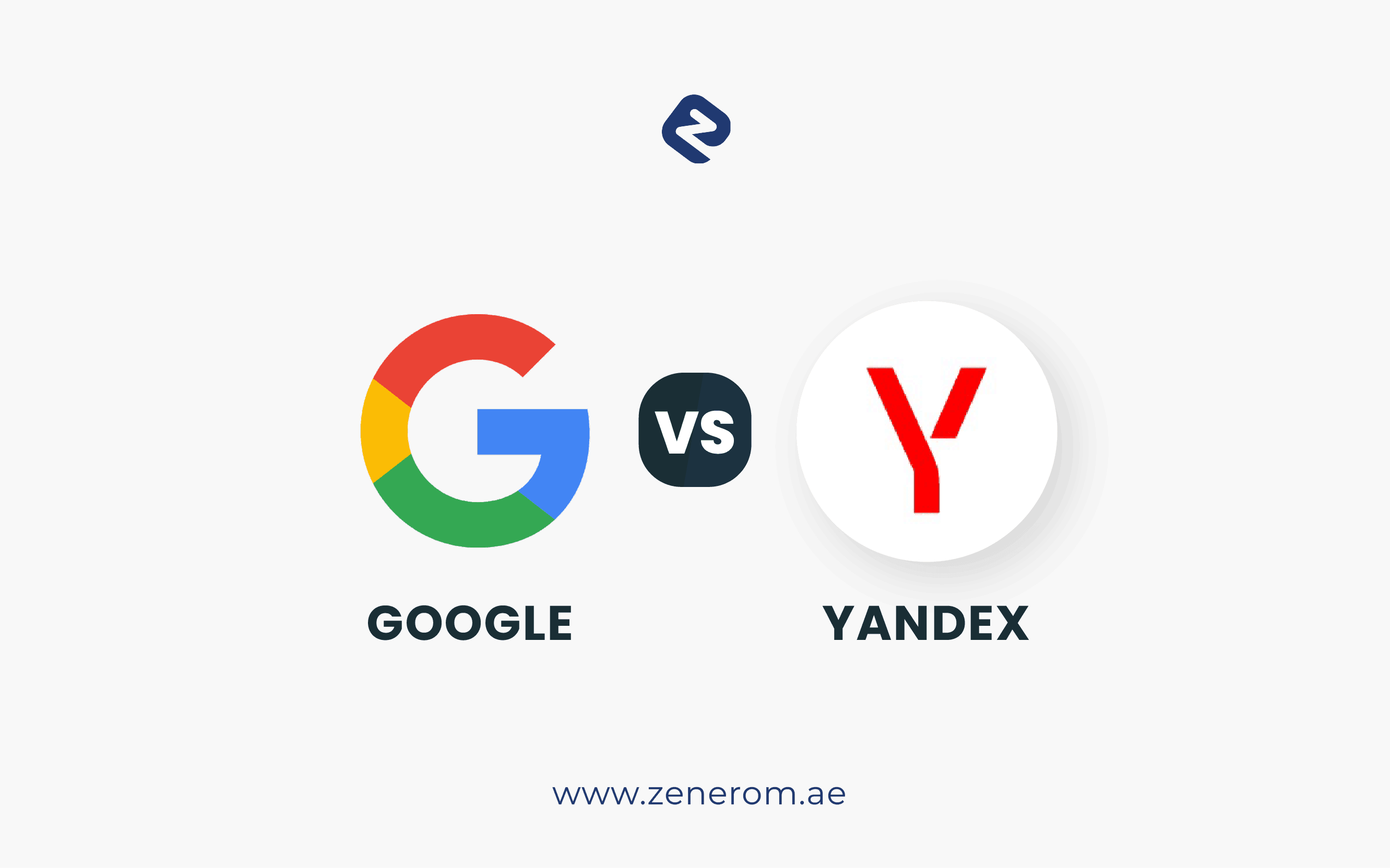While Google reigns supreme globally, Yandex holds the crown in Russia. To navigate the complexities of search engine optimization (SEO) across these two platforms, understanding their key differences is crucial. This table provides a clear comparison of Google SEO and Yandex SEO, highlighting the factors that influence ranking in each search engine. By delving into these distinctions, you can tailor your SEO strategy to achieve top rankings on both Google and Yandex, maximizing your website’s visibility to a wider audience.

The Fundamental Philosophies: A Story of Two Search Engines
Before looking into tactics, it is essential to understand the fundamental philosophies that each engine promotes.
- The Purpose of Google: To understand the user’s intent and to provide the most relevant, authoritative, and comprehensive answer to the query, usually on the search results page itself. Google wants to be a “answer engine.”
- The Purpose of Yandex: To give the most relevant and accurate result given a deep understanding of the user’s geographical location and the search history, as well as the complexity of the Russian language. It is, essentially, tied into the Russian digital ecosystem.
So try to think of it that way, a Google is a very smart librarian who is educated broadly and knows what you mean to ask. Yandex, on the other hand, is an extremely local expert and someone who is concerned about all of the details of the language and knows exactly where you are.
Actionable Checklist for Businesses in the UAE
To make the most of both platforms, you need a dual-track approach.
For Your Yandex Strategy:
- Register your site with Yandex.Webmaster and verify it.
- Create a detailed XML sitemap and submit it.
- Take advantage of the Georegions tool to help target particular CIS countries.
- Find and hire someone who speaks Russian natively to create and translate your content.
- Build relationships with bloggers and media in your desired CIS countries for link building.
- Check Yandex.Metrica regularly for key metrics such as CTR and bounce rate.
For Your Google Strategy (focused on the UAE):
- Determine whether your site is meeting all of the Core Web Vitals thresholds.
- If you’re targeting the local UAE/Arabic market, implement an Arabic language SEO strategy with the proper use of hreflang tags.
- Build a strong backlink profile from relevant UAE websites (i.e. bayut.com, gulfnews.com, or relevant .ae sites in your industry).
- Create content that demonstrates your E-A-T, particularly for finance, law, and health.
- If you have a physical presence in the UAE, optimize your Google Business Profile.
While Google reigns supreme globally, Yandex holds the crown in Russia. To navigate the complexities of search engine optimization (SEO) across these two platforms, understanding their key differences is crucial. This table provides a clear comparison of Google SEO and Yandex SEO, highlighting the factors that influence ranking in each search engine. By delving into these distinctions, you can tailor your SEO strategy to achieve top rankings on both Google and Yandex, maximizing your website’s visibility to a wider audience.


